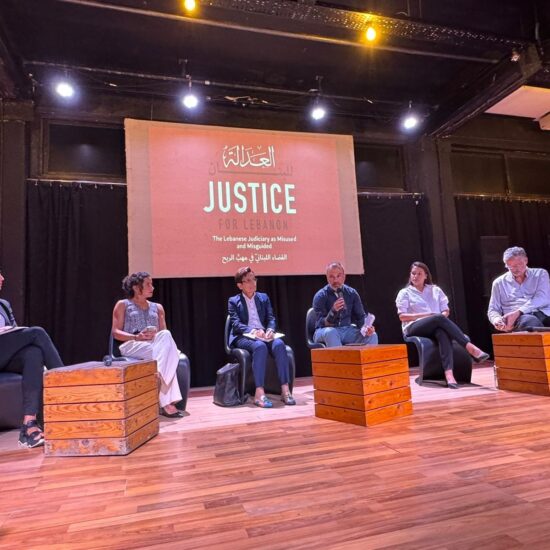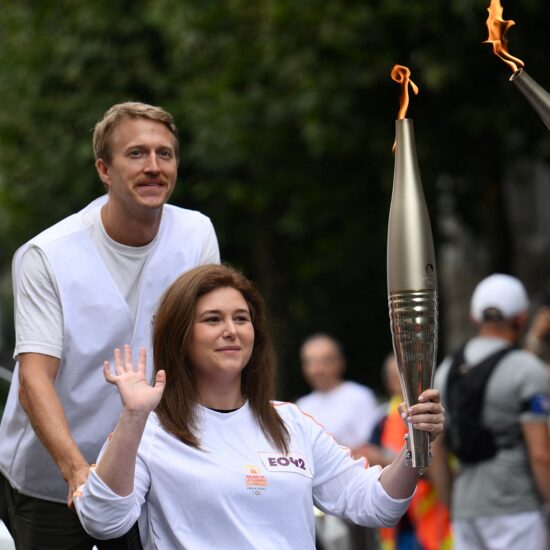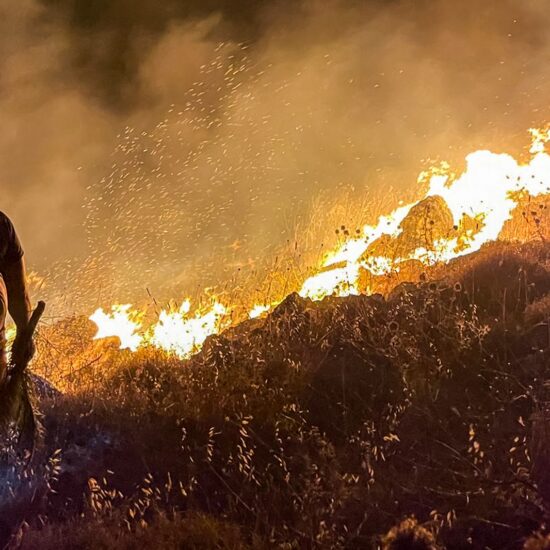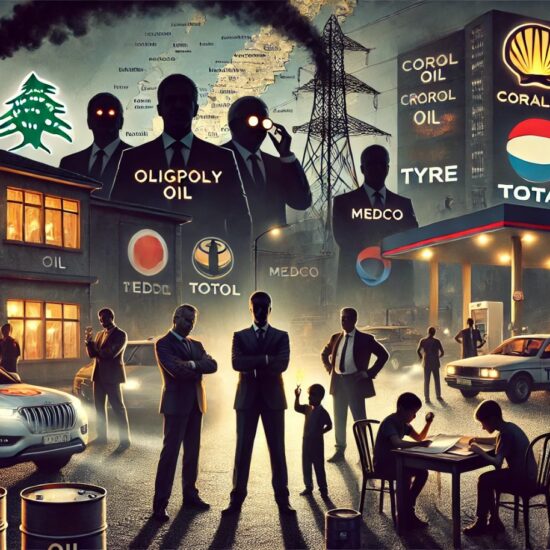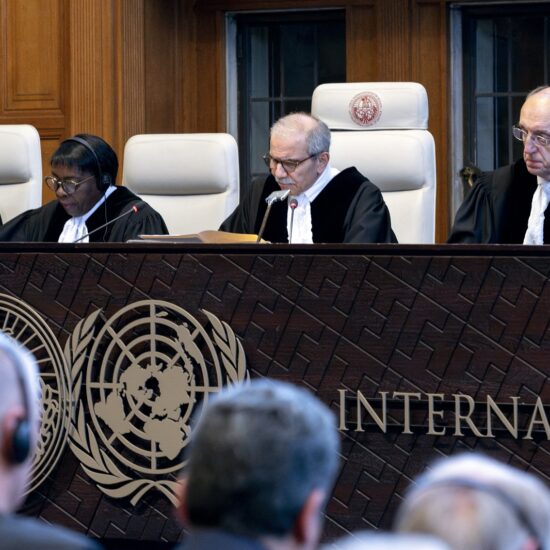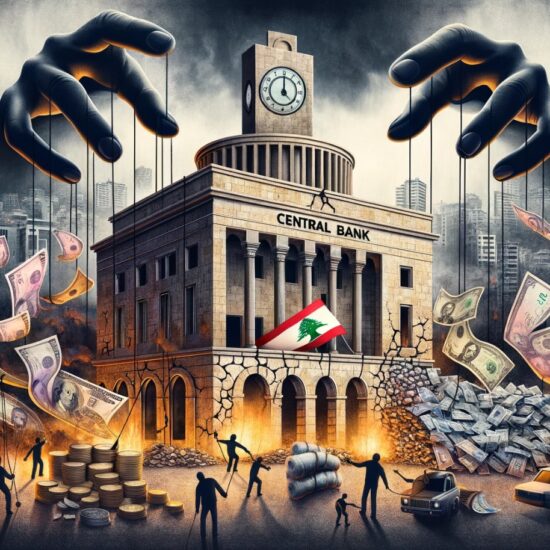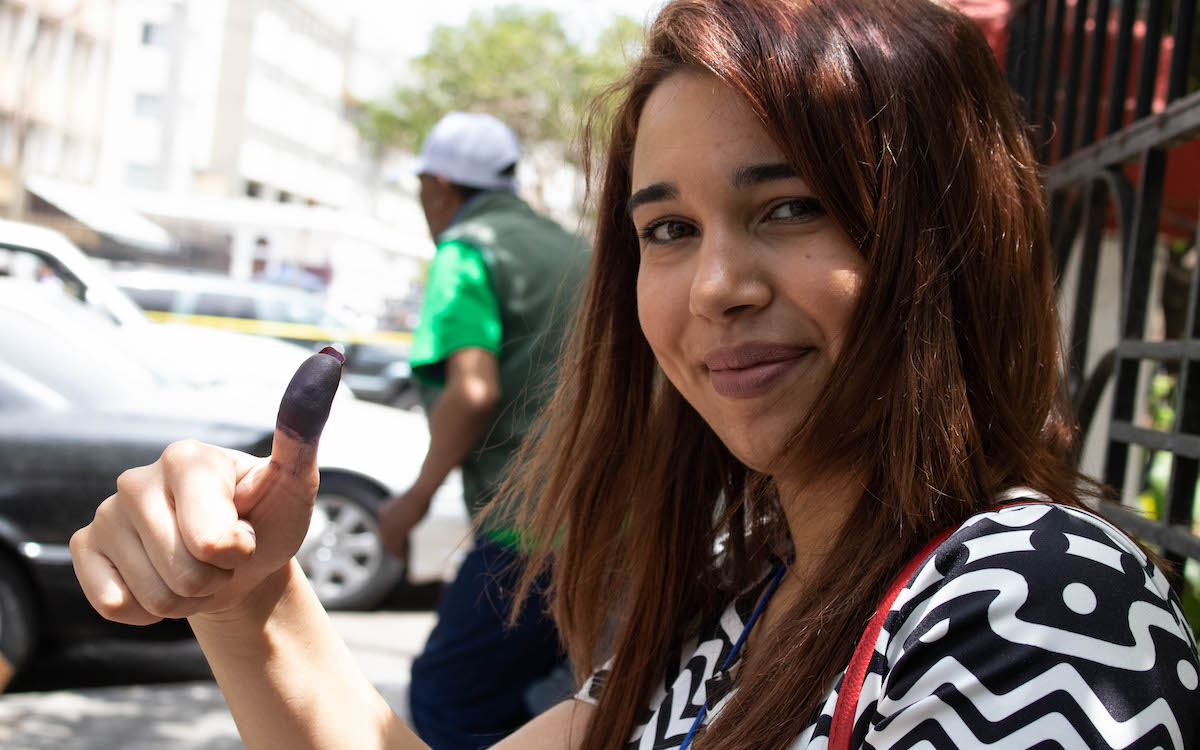
We can finally breathe.
The elections are over and the results are final.
Whether or not we are happy about what they look like, many are likely to question how legitimate some of the results are.
The voter turnout, nationally, was 41.04 percent, down from the 49.68 percent in the 2018 election.
Every district in Lebanon saw a lower turnout than in 2018, indicative of the lack of enthusiasm amongst the Lebanese people when it comes to politics and the toll that the nearly three-year economic crisis has taken on the population. Many have been forced to leave the country and, for those who stayed, hope is scarce.
View this post on Instagram
Few of the people that I spoke with on election day were optimistic about the future of Lebanon. Many saw no point in voting since they believed that things would just stay the same.
Some were pleasantly surprised by the results.
13 candidates from the opposition lists have gained seats in parliament, dethroning some of the biggest names in Lebanese politics.
There is still, however, a long way to go for a free, independent Lebanon.
Establishment politicians are still in the majority and, in some districts, the opposition was unable to breakthrough.
But it is a start. And, if the independents are what they claim to be, then this could be the beginning of the change that Lebanon is in such desperate need of.
There is a light at the end of this dark tunnel, as dim as it may be. The Lebanese people showed the traditional parties that they are not happy with how things are and want to see at least some shift in the politics-as-usual that has plagued the country for far too long.
Lebanon is not going to become a brand new country now that a handful of opposition MPs are in Parliament. It is going to require a lot of work and for the Lebanese people to hold these new MPs accountable for their actions.
These then-candidates ran on the principle of “change,” whatever that might mean to them, but it is so easy that once you are in power to get swept into how politics have been done in the country for decades. The opposition needs to remember why they were elected.
It was for the people. For Lebanon.
The opposition has the opportunity to make serious gains in the next election and the election after that. But they cannot become complacent just because they now have a little bit of power.
It is going to require a lot of work, and that work begins now.
The results
Winners and losers: Hezbollah had a lot riding on these elections. Following the 2018 elections, the group was arguably the most powerful political player in the country through its alliance with the Free Patriotic Movement and the Amal Movement. On top of this, Saad Hariri announced that he and his Future Movement were going to retire from political life, dealing a severe blow to the opponents of the armed Shiite party.
Hezbollah and Amal’s seats were all but secured from the moment that they announced the elections, so the Shiite duo were not too worried about themselves losing many seats in Parliament. Rather, Hezbollah’s focus was to ensure that its allies, particularly the Maronite Free Patriotic Movement, not only kept their seats, but potentially gained in other places as well.
Tripoli, in the north of Lebanon, was a place where Hezbollah was looking to expand its influence in particular. Hariri, even at his lowest in the 2018 elections, swept the North II district, winning a majority of the 11 possible seats. Without Hariri, it had become a question of who would fill the void left by the Future Movement.
Two initial candidates were Prime Minister Najib Mikati’s Azm Movement and Faisal Karame’s Dignity Movement but they fell short with Ashraf Rifi and his alliance with the Lebanese Forces winning big in the district, essentially shutting the door, at least for the time being, on any plans by Hezbollah to gain a foothold in the north.
However, the Party of God was not the only one vying for expanded influence throughout Lebanon.
Samir Geagea’s Lebanese Forces also saw an opportunity to win more seats, such as in Tripoli, but also in areas traditionally controlled by the FPM, which was becoming increasingly criticized because of its alliance with Hezbollah.
While Hezbollah did its best to bolster its allies, it was not enough.
The LF, along with LF-backed candidates, won 21 seats in Parliament, an increase from the 15 that it previously held, while the FPM only won 18. This makes the LF the largest Christian party in Lebanon, a phrase often used by the FPM to describe themselves, and lends more support to the LF that they are the “defenders of Lebanon’s Christians.”
In addition to the FPM’s poor performance in the election, Hezbollah-backed candidates also lost out to new opposition lists.
What does this mean?: Even though Hezbollah and Amal’s candidates are all but assured to keep their seats, the fact that their allies did so poorly resulted in Hezbollah and its allies only having 61 seats in Parliament, four seats short of the 65 needed to hold a majority.
Normally this difference would be made up with the victories of their allies in the other districts, but, with the victory of opposition candidates in some of these key races for Hezbollah’s majority, it assured that Hezbollah has lost its majority.
With the LF winning so many seats and the opposition groups refusing to work with politicians from the old establishment parties, it is likely going to make coalition-building that much more challenging.
Reasearch on conference lunchbreak here, so don’t judge, I haven’t followed second by second. But if Hezb&FPM&Amal don’t get majority, noone will probably get it. And it’s going to be interesting to follow coallition negotiations. #Lebanon
— Ana Maria Luca (@AnaMariaLuca79) May 16, 2022
The opposition politicians cannot ally themselves with either side or else they risk going back on a core electoral stance of wanting to “change” Lebanese politics. This could mean that there will be three or more different coalitions in Parliament. The first two are those allied with Hezbollah and those allied with the Lebanese Forces. The third would be the opposition politicians. But, as we saw with the formation of electoral lists, there are deep divisions amongst the opposition. So will they actually be able to get past their differences and unite?
Results by district
North I: The North I district, which consists of Akkar, saw a 40.73 percent voter turnout on election day.
Former Future Movement members who ran in the election, who I like to call Future lite, and pro-Saudi candidates did well in this district, something that was to be expected as the north has traditionally been more favorable towards the Gulf Arab countries and the Future Movement.
The winners are former Future Movement candidates Sajeeh Ateya, Ahmad Rustom and Walid Barini, who ran on the same list, pro-Saudi candidate Mohamad Sleiman, FPM’s Jimmy Jabbour, Assad Dergham and Mohamad Yehya who ran on the FPM list.
North II: The North II district had the second-lowest voter turnout in all of Lebanon, with its subdistrict, Tripoli having the lowest.
In the past, Hariri would normally win the majority of seats in this district. But, since his party was no longer participating, possibilities were left up in the air.
From the moment the polls closed until the official results were announced, it was a rollercoaster ride of speculation over who won. Until the very end, it was unclear if Faisal Karame, who has been one of the leading Sunni figures in Tripoli, would actually win a seat. He did not.
Rather, the big winner was Ashraf Rifi, allied with the Lebanese Forces, who won three of the eight seats in Tripoli.
Rifi had run unsuccessfully in Tripoli in the past and is not known to have that much support in the city. But, while speaking with people in Tripoli on election day, many claimed that they were going to vote for him and his list not because they believed in him, but, rather, because they were scared of Hezbollah taking over the country. They voted out of fear.
In Tripoli, along with Rifi, opposition candidate Rami Fringe, Abdel Karim Kabbara, whose father was a member of the Future Movement but ran on Mikati’s list, pro-Hezbollah candidate Taha Naji, Islamic list candidates Ihab Matar and Firas Salloum and LF’s Elias Khoury and Jamil Abboud emerged victoriously.
In Danniyeh, pro-Hezbollah candidate Jihad Samad and former Future Movement candidate Abdelaziz Samad won.
In Minyeh, former Future Movement candidate Ahmad Kheir won the district’s one seat.
North III: This was arguably the most competitive district in Lebanon’s north. Consisting of Batroun, Zgharta, Koura and Bcharre, this was a major battleground for the Christian seat in Parliament.
One of the most notable developments was the FPM’s loss in Batroun, a historical stronghold for the party and party president Gebran Bassil’s home district. Bassil came in second to the LF’s candidate, Ghayath Yazbeck, with Kataeb’s Majd Harb coming in third.
Following the preliminary results, Bassil gave a speech where he claimed that “the movement was not in a battle with the [Lebanese] Forces, PSP, Kataeb, Amal and others, but rather with a battle that began at a minimum on the 17th of October with the United States, Israel and their allies.”
There were also a few other surprises.
In Bcharre, which is a stronghold for the Lebanese Forces, Marada was able to win a seat with only Sethrida Geagea winning a seat there for the LF.
In Zgharta, a stronghold for Suleiman Frangieh and his Marada Movement, initial predictions had Marada winning two seats, just as in the previous election, but only Frangieh himself was able to win a seat as Michel Douaihy from the opposition’s Shamaluna was able to snatch it away from them. In the end, independent Michel Maouwad, Marada’s Tony Frangieh and opposition candidate Michel Douaihy were the victors.
In Koura, LF’s Fadi Karam, FPM’s George Atallah and Kataeb’s Adib Abdel-Masih all won seats.
In Bcharre, the LF’s Sethrida Geagea and Marada’s Melhem Touk won.
Mount Lebanon I: Mount Lebanon’s first district is a bit of a mix.
The official results are:
Naamet Frem, who was an MP for the FPM before leaving the party to run as an independent in this election, won a seat in Keserwan, along with FPM candidate Nada Boustani, LF candidate Chawki Daccache, Farid al-Khazen and Kataeb candidate Salim Sayegh.
In Jbeil, LF candidate Ziad Hawat won alongside Hezbollah candidate Raed Berrou and FPM candidate Simon Abi Ramia.
Mount Lebanon II: Metn has been an interesting race to watch.
A lot of eyes were on Jad Ghosn, an investigative journalist and podcaster, who was running with Citizens in a State. Since the polls closed, social media was awash with people either confirming his victory or defeat. Ultimately, though, he lost by 88 votes.
Current state of Lebanese elections vote counting. pic.twitter.com/95FiBCdymU
— Adam Baron (@adammbaron) May 16, 2022
One person who did win a seat is Michel el-Murr, son of former Interior Minister Elias el-Murr, who stated prior to the diaspora vote that he was not offering a political program because he was raised not to deceive people, especially so that they cannot hold him accountable for not fulfilling his electoral promises in four years.
The full list of winners includes Kataeb’s Samy Gemayel and Elias Hankash, LF’s Melhem Riachi, FPM’s Ibrahim Kanaan and Elia Bou Saab, Tashnag’s Hagop Pakradounian and Michel el-Murr.
Mount Lebanon III: Little changed in Baabda with this election.
Hezbollah candidate Ali Ammar, Amal candidate Fadi Alameh and FPM candidate Alain Aoun all won their seats in parliament without issue.
Progressive Socialist Party candidate Hadi Abu Hassan is also won
LF candidate Pierre Bou Assi and LF-backed candidate Camille Chaamoun joined the list of winners.
Mount Lebanon IV: This was the big one.
Talal Arslan, an ally of Hezbollah, was expected by many to win the Druze seat in Aley which would have gone far in helping Hezbollah expand its influence.
Alas, it was not meant to be, with newcomer Marc Daou winning over Arslan, dealing yet another blow to Hezbollah who was already hemorrhaging allies with the Christian losses in the North III district.
The PSP continued to do well in the district, winning nearly half of the 13 total seats.
In Chouf, the winners are the PSP’s Taymour Joumblatt, son of Walid Joumbaltt, Marwan Hamadeh and Bilal Abdallah, opposition candidates Najat Aoun and Halima Kaakour, the FPM’s Ghassan Atallah and Farid Boustani and the LF’s George Adwan.
In Aley, the winners were opposition candidate Mark Daou, PSP’s Akram Chehayeb and Raji Saad, LF’s Nazih Matta and the FPM’s Ceasar Abi Khalil.
For more on the election in Chouf and Aley, check out David Isaly’s piece on Mark Daou’s victory here.
Beirut I: This district, surprisingly, had a very low turnout, with only 28.5 percent of registered voters actually heading to the polls.
The winners are the opposition’s Paula Yacoubian and Cynthia Zarazir, Kataeb’s Nadim Gemayel, Tashnag’s Hagop Terzian, LF’s Ghassan Hasbani and Jihad Pagdouroni, FPM’s Nicolas Sehnaoui and independent Jean Talouzian.
The district was also thrown into chaos when it was announced that a box carrying the votes for the diaspora in Germany for the district was lost.
مراسلة “الجديد”: الصندوق الفقود في دائرة بيروت الأولى أتى من من اولدنبرغ شمال المانيا#السلطة_للشعب#انتخابات_لبنان_2022 #لبنان_ينتخب #انتخابات2022 #انتخابات_لبنان#الانتخابات_النيابية#انتخابات_2022
— Al Jadeed News (@ALJADEEDNEWS) May 16, 2022
Interior Minister Bassam Mawlawi said that the box was not lost and had arrived from Germany and was going through the proper procedure so that the votes will be counted.
Beirut II: Beirut has often been viewed as being the melting pot of Lebanon where people from all sects and backgrounds live together.
With the results from this election, it looks like it might be somewhat more representative of the people’s views when it comes to politics and how the country should be run.
The winners are the opposition’s Ibrahim Mneimneh, Melhem Khalaf and Waddah Saddek, Hezbollah’s Amin Sherri, Amal’s Mohammad Khawaja, al-Ahbash’s Adnan Traboulsi, FPM’s Edgar Traboulsi, pro-Future Movement candidates Imad Hout and Mophamad Badr, PSP’s Faysal Sayegh and independent candidate Fouad Makhzoumi.
Bekaa I: Interior Minister Bassam Mawlawi announced the winners in Zahle during a press conference where he gave an update on the vote counting.
The winners that he announced are Rami Abu Hamdan with Hezbollah, Elias Estafan with the LF, Bilal Hashimi who ran on the LF list, George Okeis with the LF, Salim Aoun with the FPM and independent Michel Daher.
Bekaa II: The most surprising result of the election in West Bekka and Rashaya might not be who won seats, but, rather, who lost.
Elie Ferzli, who was on the FPM list and served as deputy speaker of parliament, lost his seat in Parliament after holding his seat in the Bekka off and on since the early 2000s.
Ferzli gained more notoriety last year when he had a meltdown during an interview on live television.
The winners in the district are PSP candidate Wael Abou Faour, Hezbollah-backed candidate Hassan Mrad, Amal’s Qabalan Qabalan, Hezbollah-backed candidate Charbel Maroun, opposition-backed candidate Yassin Yassin and PSP-backed candidate Ghassan Skaff.
Bekaa III: The results for the Baalbek-Hermel region actually came back pretty quickly with Hezbollah and its allies winning all but one of the seats, unsurprisingly, and one candidate backed by the LF winning a Roman Catholic seat.
The winners are:
Hezbollah’s Ali al-Miqdad, Ibrahim Mussawi, Hussein Hajj Hassan, Ihab Hamadeh Amal’s Ghazi Zeaiter, pro-Hezbollah Jamil al-Sayed, Hezbollah-backed Yanal Solh, Hezbollah-backed Melhem Hojeiri and LF’s Antoine Habashi.
South I: The winners for the South I district are:
In Sidon, indepdendents Abdel Rahman Bizri and Osama Saad.
In Jezzine LF-backed candidates did well with independent Saaed Asmar and Ghada Ayoub winning along with independent Charbel Masaad.
South II: As many expected, the districts of Tyre and Zahrany remained reliably in control of Amal and Hezbollah.
Parliamentary Speaker and head of the Amal Movement easily secured re-election along with his party members Inaya Ezzedine, Michel Moussa and Ali Osserian. Ali Khreis secured his first term in Parliament.
Hezbollah’s two candidates, Hassan Ezzedine and Hussein Jashi, were also re-elected.
South III: This is the district that shocked all of Lebanon.
In the past, Hezbollah and its allies have easily dominated the entire district, leaving no room for any opposition to win.
That pattern ended yesterday.
When results first started coming in, no one was surprised to see that Hezbollah and Amal’s candidates all won their seats. However, people started to pause when they saw what was previously believed to be unimaginable. The Greek Orthodox seat in Maarjayoun-Hasbaya went to Elias Jradi, an eye doctor running on the “Together Towards Change” list.
It did not stop there either. Firas Hamdan, also running on the “Together Towards Change” list in Maarjayoun-Hasbaya, defeated Marwan Kheireddine, a banker who proved to be an unpopular choice for Hezbollah and Amal to have run on their list.
معلومات لـ”#الجديد“: حصول لائحة “معا نحو التغيير” على حاصليّن في دائرة الجنوب الثالثة وخسارة مروان خير الدين لمصلحة فراس حمدان#السلطة_للشعب #انتخابات_لبنان_2022 #لبنان_ينتخب #انتخابات2022 #انتخابات_لبنان
— Al Jadeed News (@ALJADEEDNEWS) May 16, 2022
While Hezbollah and Amal dominated the district, the opposition showed what can be done when they work together instead of bickering amongst one another.
The winners in Nabatieh are Hezbollah’s Mohammad Raad and Amal’s Hani Qobeissi and Nasser Jaber.
In Bint Jbeil, the winners are Amal’s Ashraf Baydoun and Ayoub Hmayed and Hezbollah’s Hassan Fadlallah.
Lastly, in Maarjayoun-Hasbaya, the winners are the opposition’s Firas Hamdan and Elias Jradi, Amal’s Qassem Hashem and Ali Hassan Khalil, who is under investigation in the Beirut Port explosion investigation, and Hezbollah’s Ali Fayyad.
For an interesting look at voting in South Lebanon, be sure to read Dana Hourany‘s dispatch from the region. It is a perspective that you would be hard-pressed to find anywhere else.
Data: With the official results, establishment parties continue to hold a majority in Parliament, something that was anticipated by everyone.
In total, opposition candidates won 13 seats. Independent candidates, meaning those who ran without any backing from a political party but are not outright opposition, won nine seats and the traditional parties won 106 seats.
Hezbollah and its allies hold a total of 61 seats, meaning that they lost the majority that they enjoyed following the 2018 election. It is unlikely that anyone will gain a solid majority.
There are also now eight female MPs in Parliament, a new record and up from the six that won in the 2018 election. Four of the new MPs are from opposition lists while the other four are members of the LF, Amal and FPM.
Counting in the dark: Almost an hour and a half after the polls closed on election day, LADE, the Lebanese Association for Democratic Elections, posted a photo of people counting ballots by flashlight in the Beirut I district as the electricity had cut.
“In one of the sorting centers in Beirut first, the sorting takes place in light of the power outage, despite the promises of the Ministry of the Interior to secure the current when sorting,” the post read.
في أحد مراكز الفرز في بيروت أولى، الفرز يتم في ظلّ انقطاع التيار الكهربائي رغم وعود وزارة الداخلية بتأمين التيار عند الفرز.#انتخابات_2022#لأربع_سنين pic.twitter.com/BoDRmxsPVI
— LADE (@LADELEB) May 15, 2022
The wrap: For more on what happened on election day from the north to the south, be sure to read NOW Lebanon’s election day wrap up, written by Ana-Maria Luca, David Isaly, Sally Abou al-Joud, Philippe Pernot, Dana Hourany and myself.
You can read it here.
Lebanon+
Podcasts: As stated in last week’s briefing, Ronnia Chatah had been very busy on the Beirut Banyan, having candidates and acitivists on his show practically every day. Some of these are with Paul and Tracy Naggear, Fouad Makhzoumi and Alain Aoun.
Ramzi Abou Ismail was quite busy himself in the run-up to election day. On the Happy Hour Show, he spoke with Elias Shankach, Samir Saliba and Mouna Sukkar from Metn the Change. Abou Ismail also goes on the record with Joelle Howayek and Majd Harb from the North of Confrontation. Finally, Abou Ismail spoke with Layal Bou Moussa and Michel Douaihy from Shamaluna.
Last, but not least, Ben Redd and Nizar Hassan return for the next to last episode of the Lebanese Politics Podcast election special where the two discuss the elections that were just days away and run down the possible outcomes that we could see. How right were they? Take a listen and find out.
Till next week, follow NOW Lebanon on Twitter, Instagram, Facebook, and LinkedIn, and subscribe to our weekly newsletter. And stay safe.



